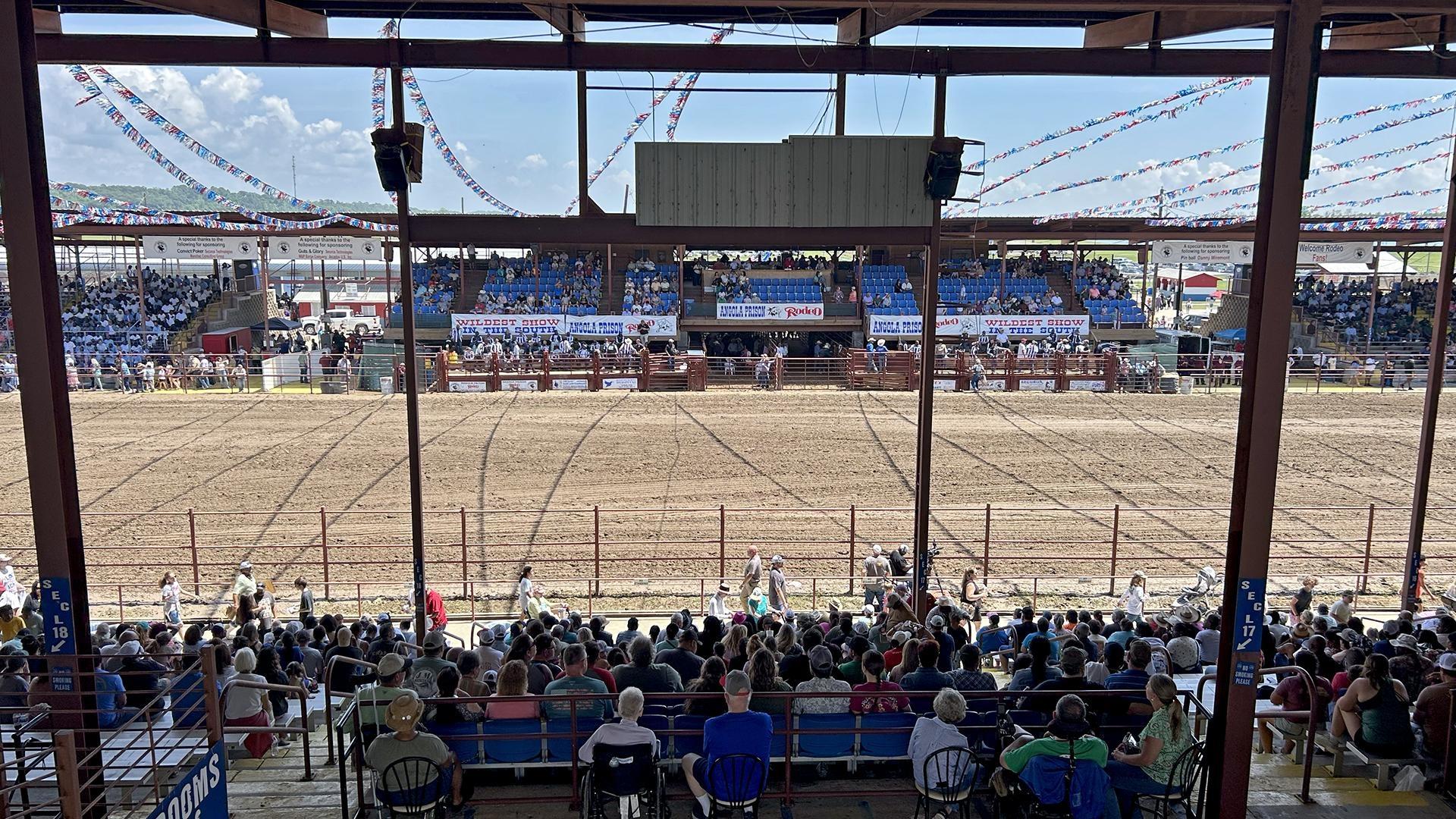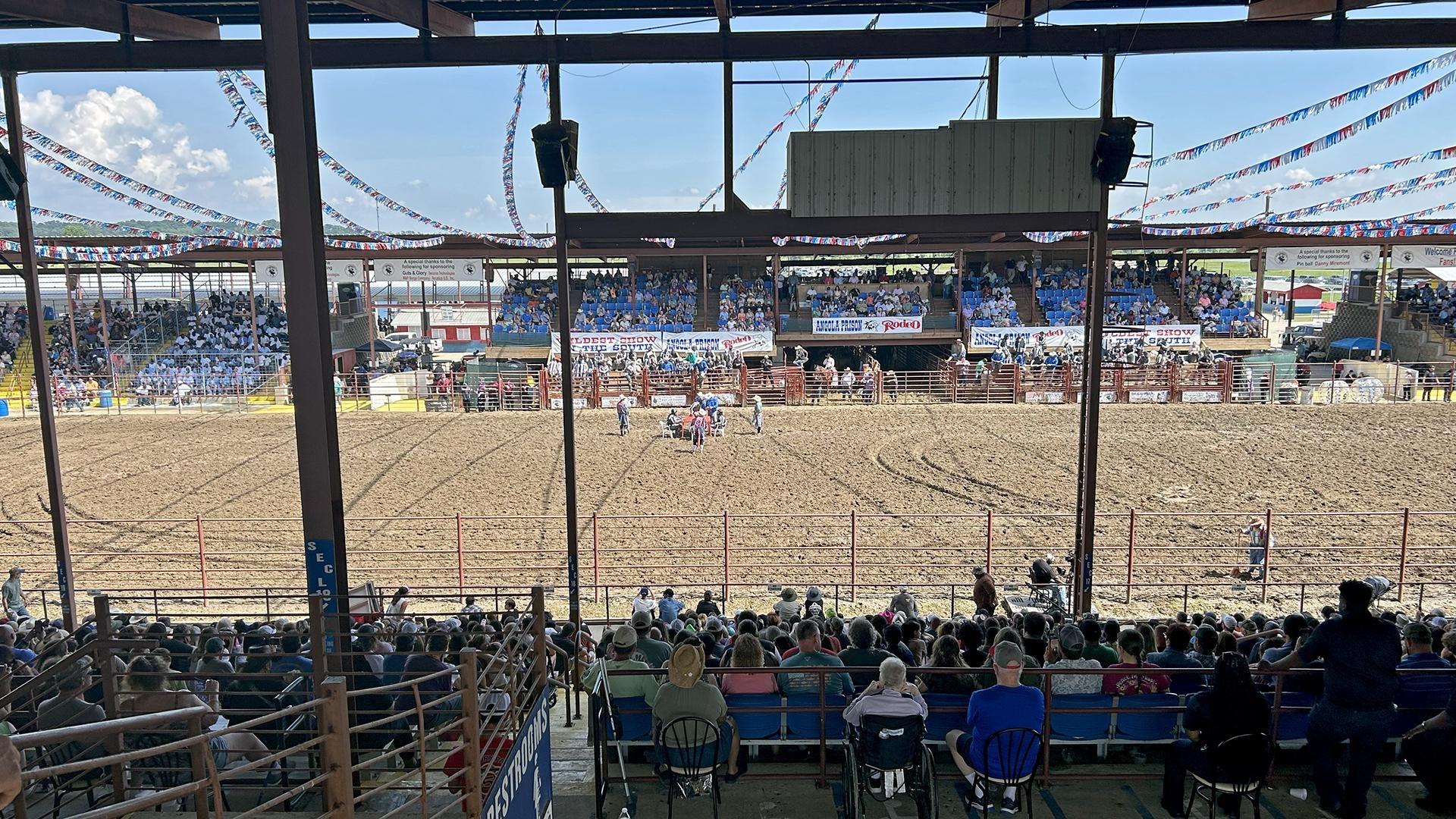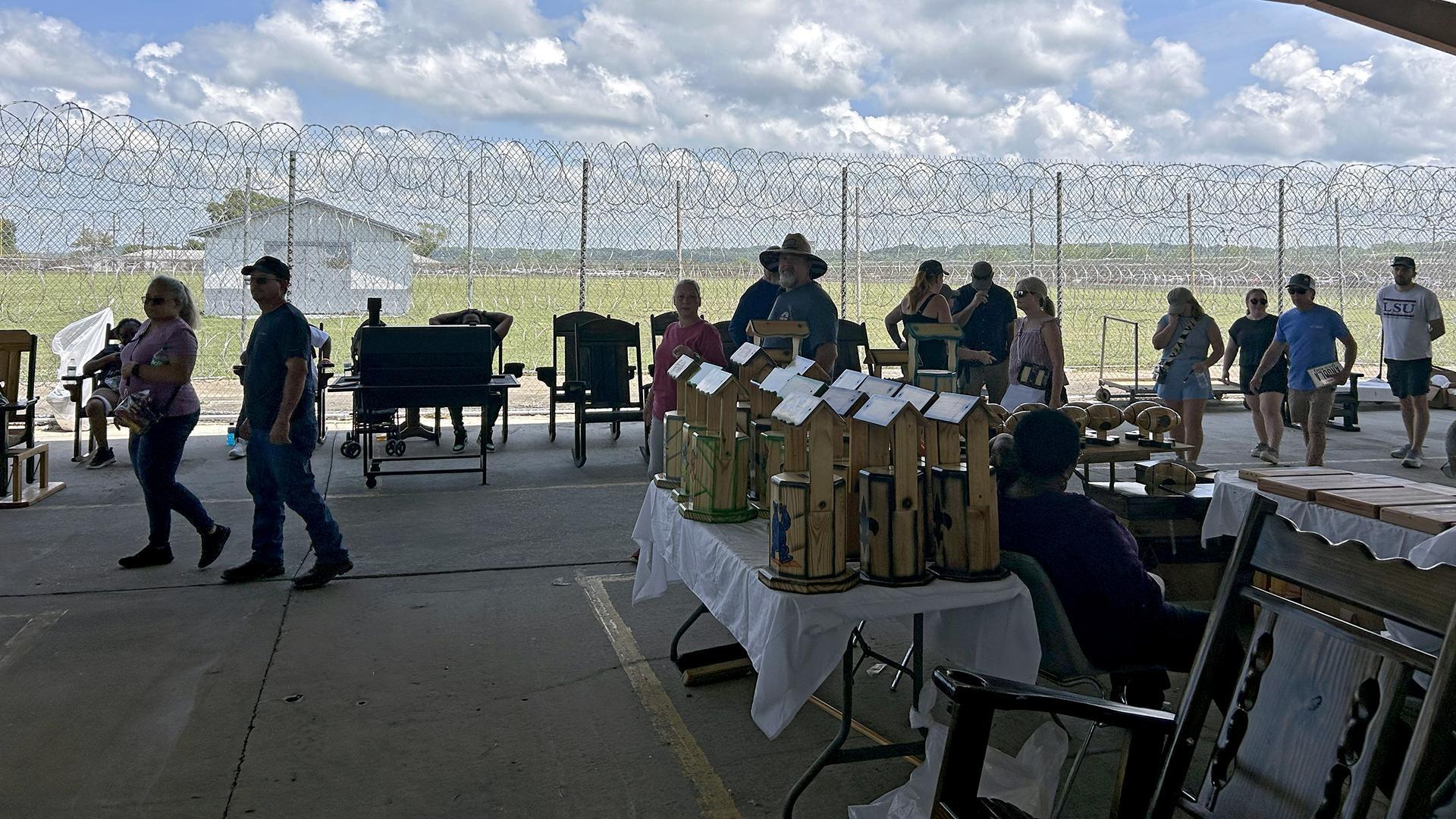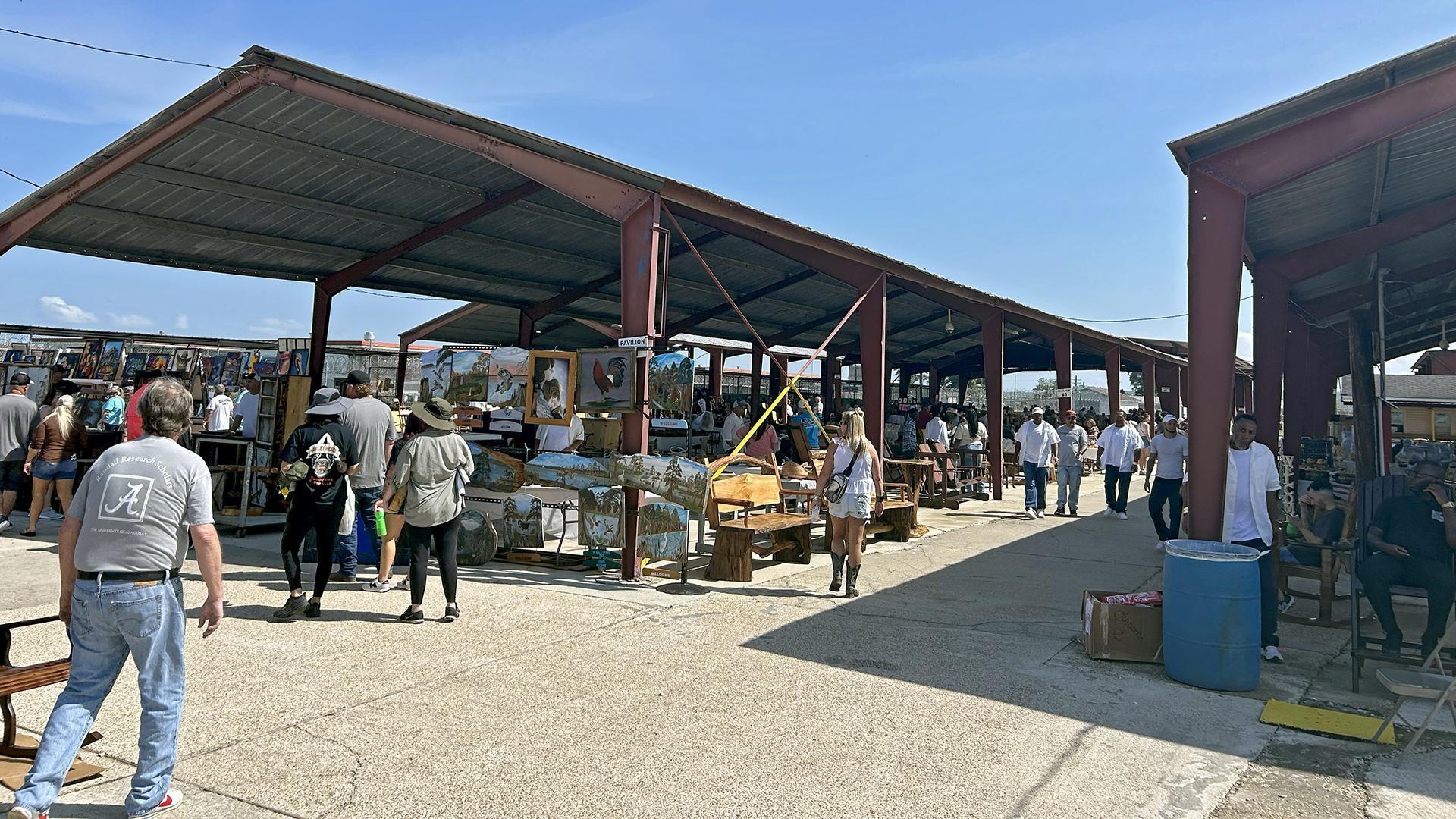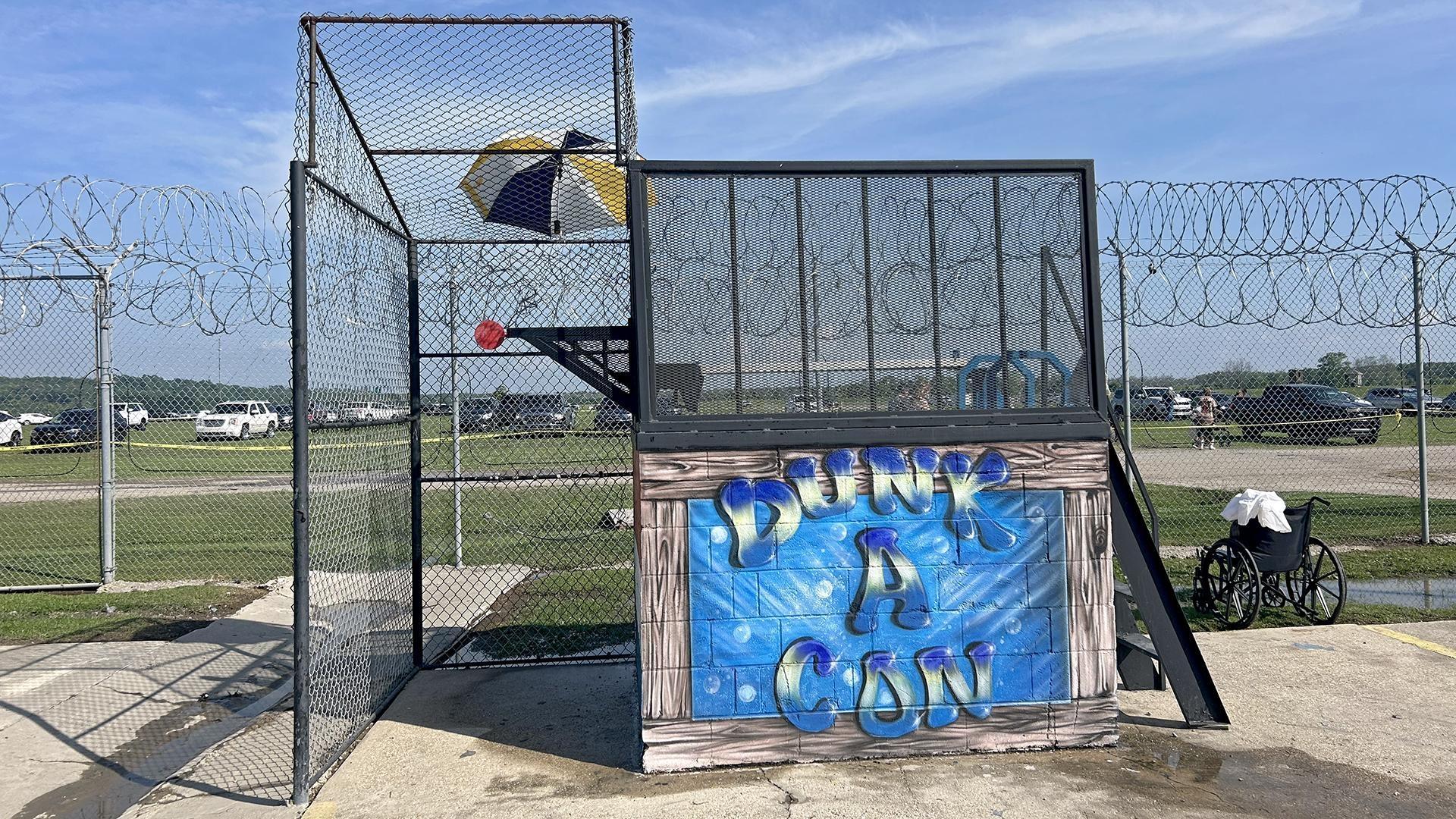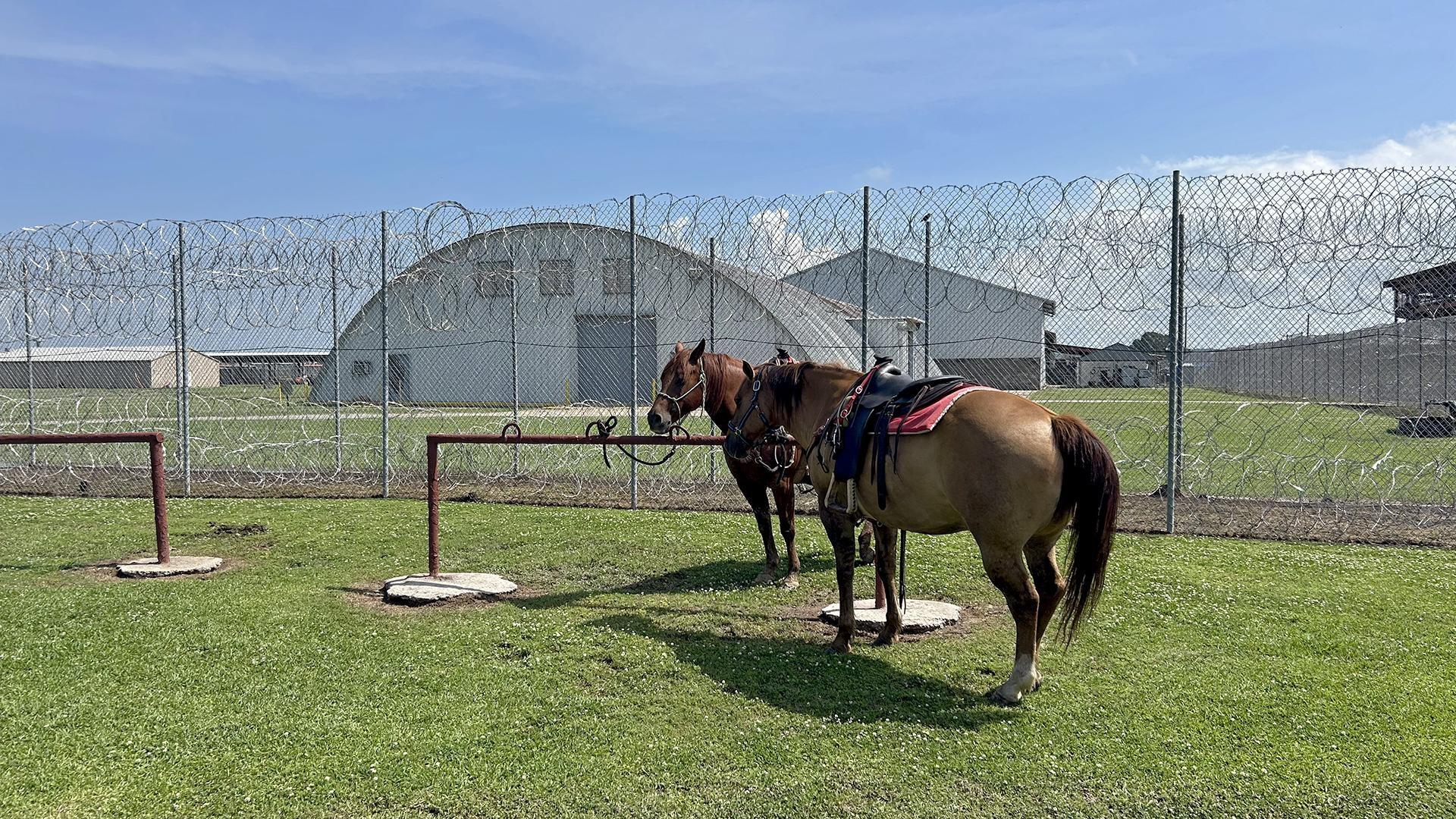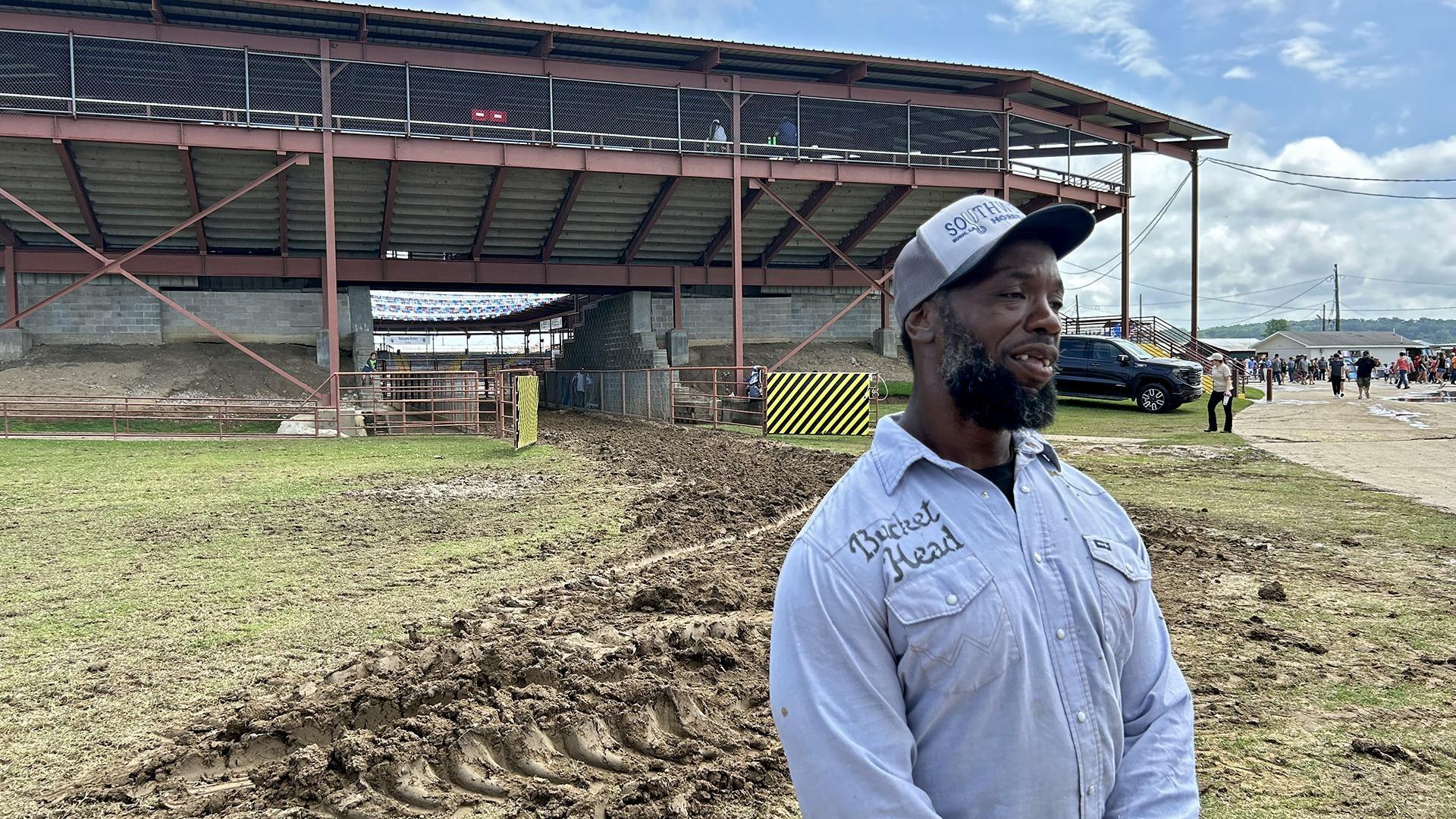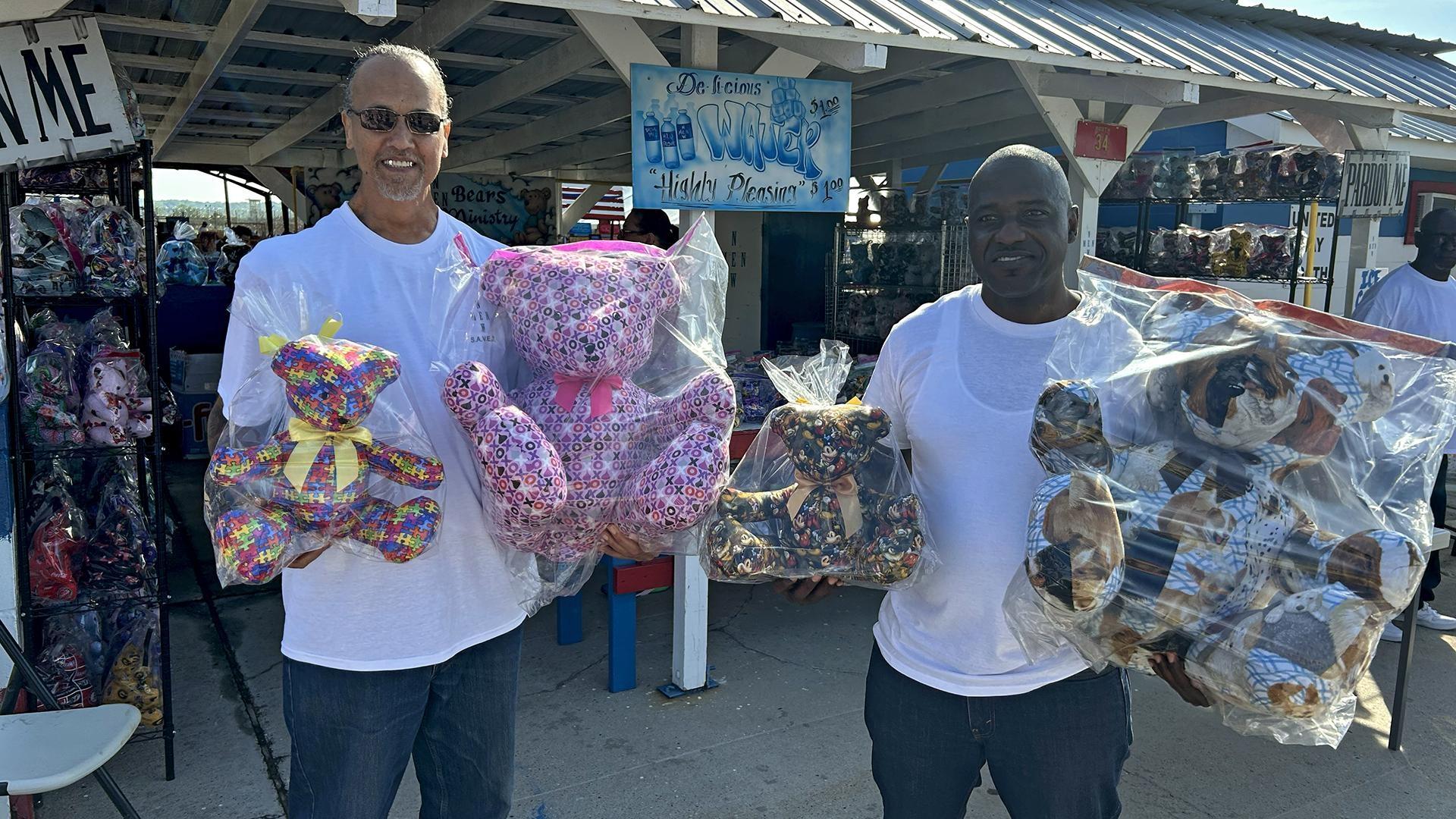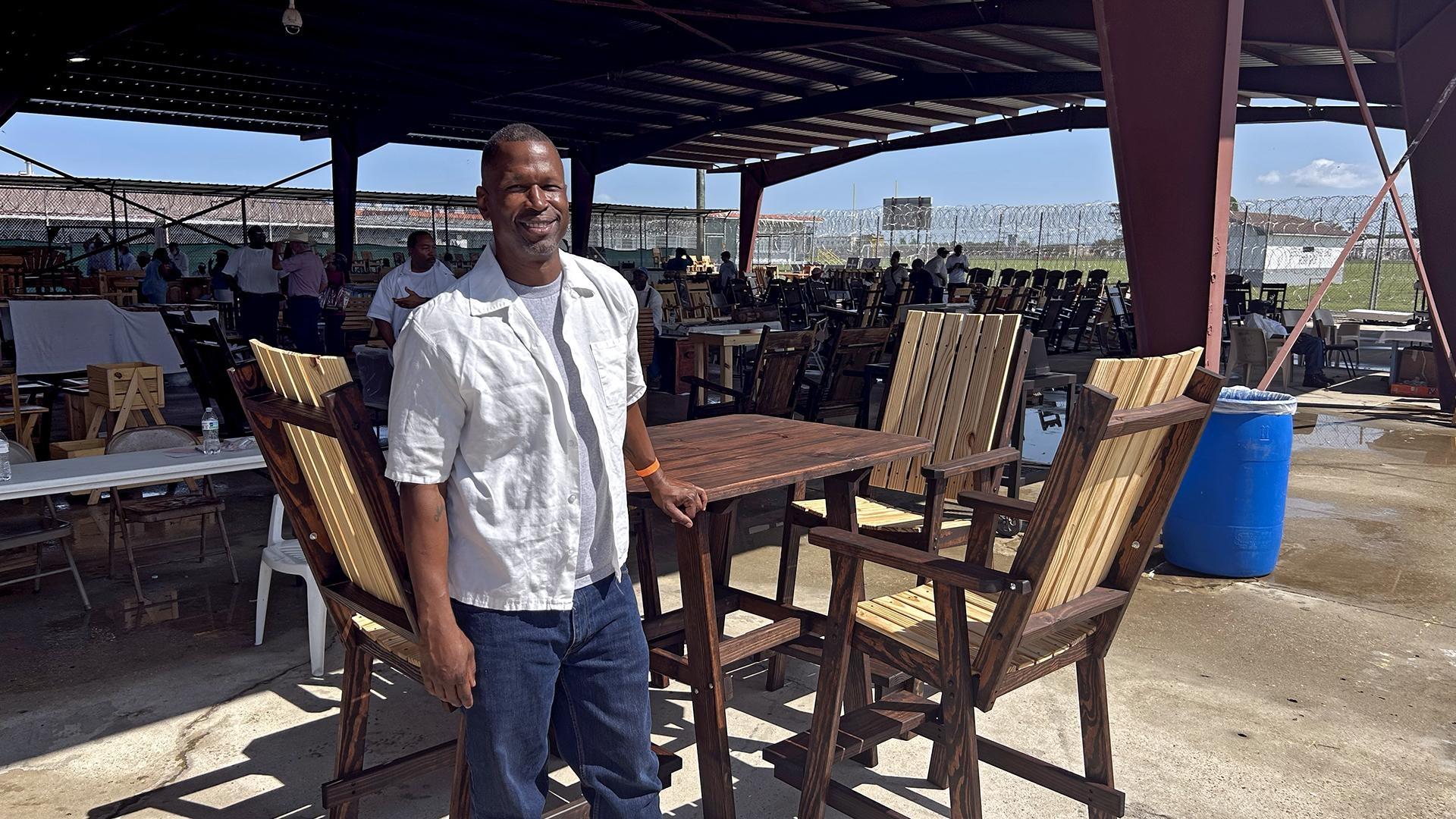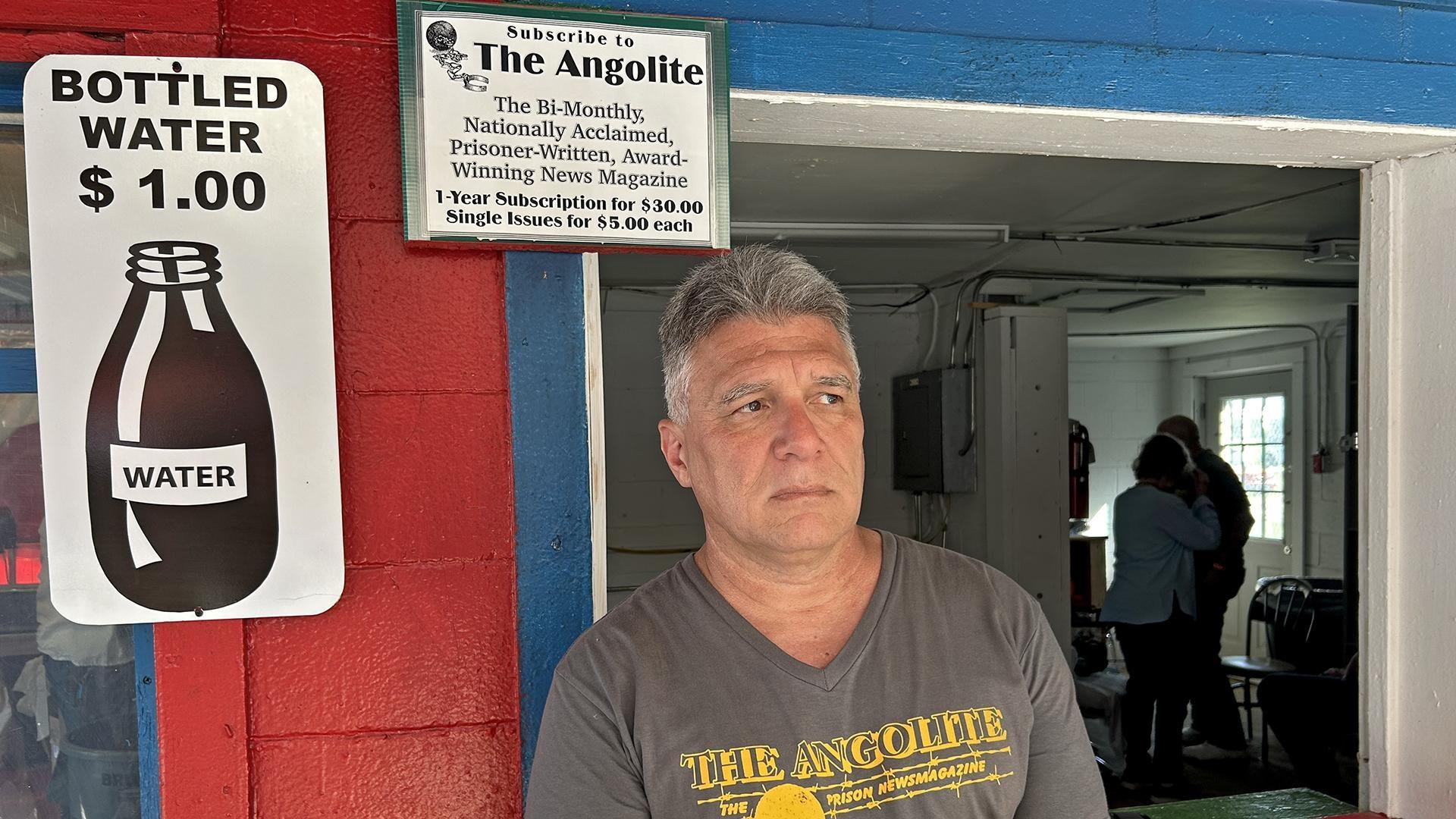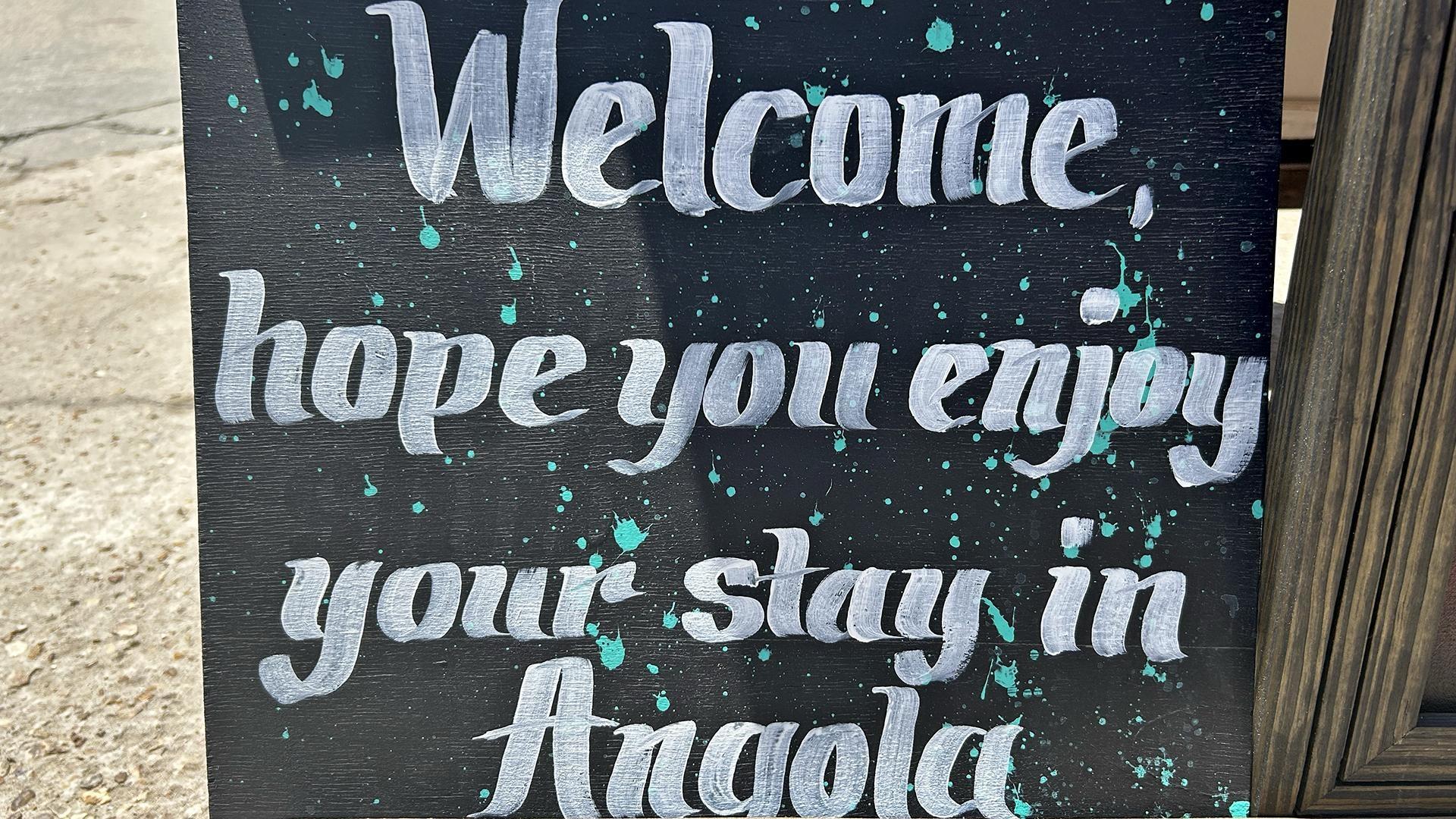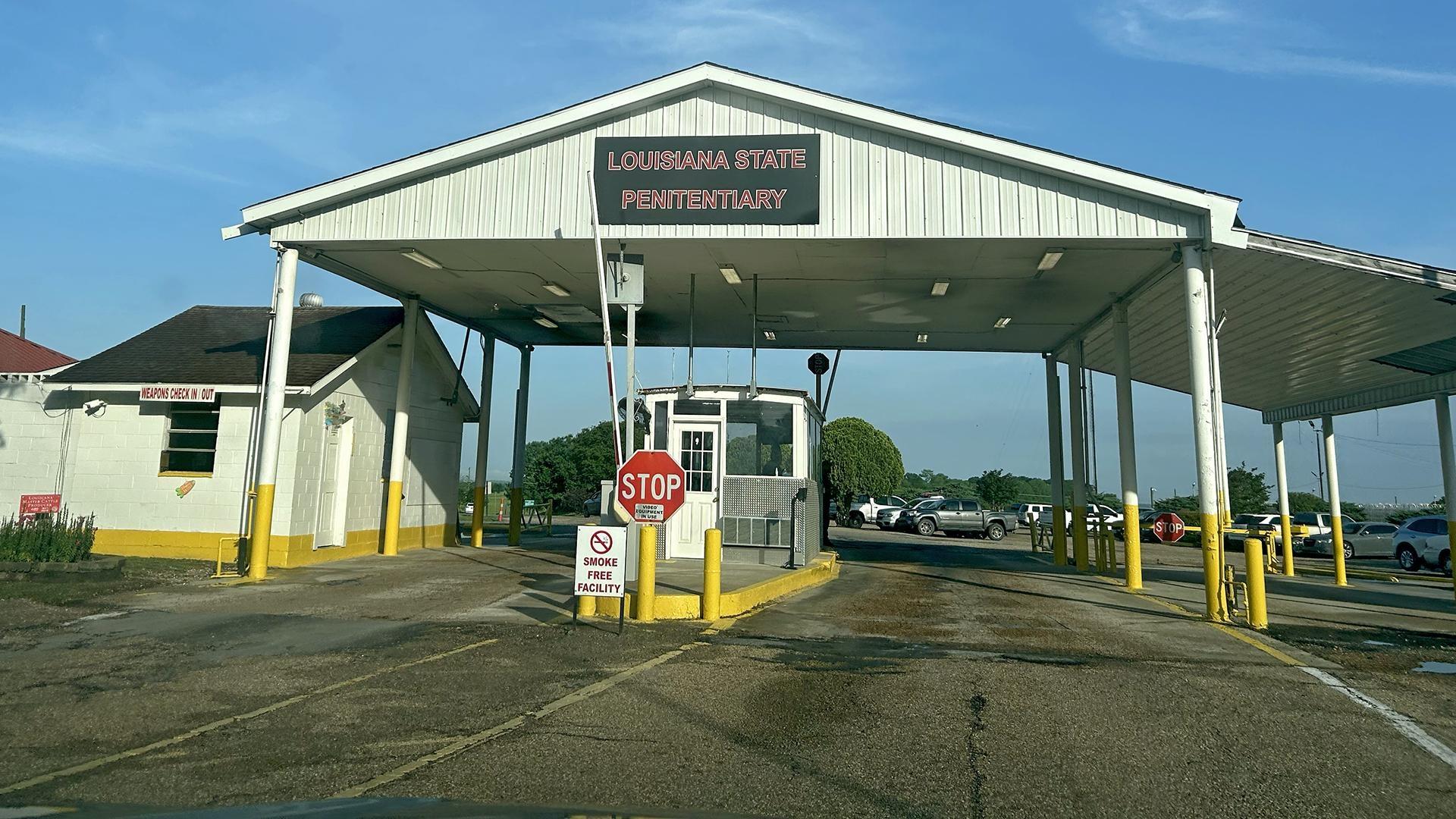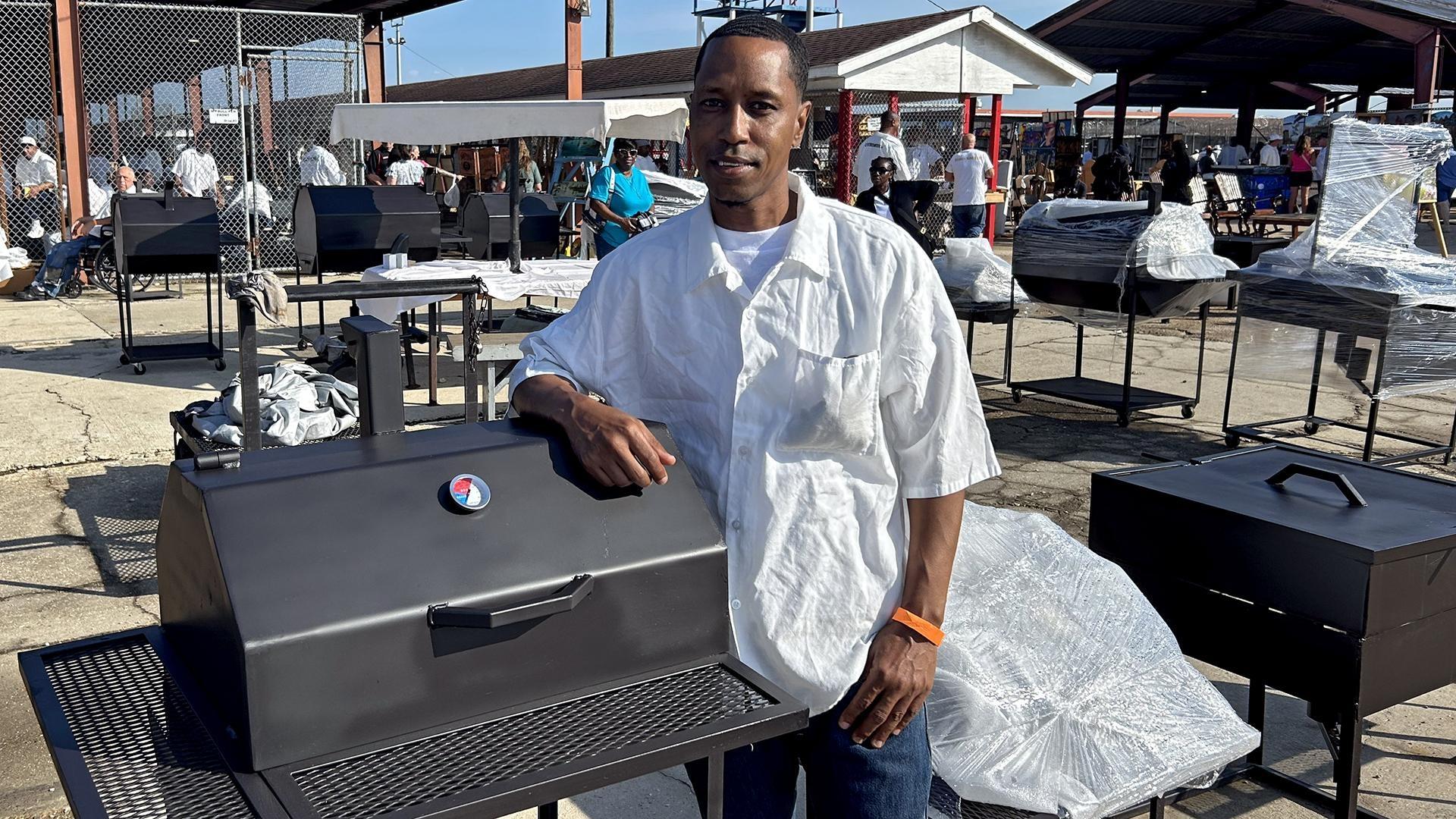NORRIS HENDERSON: This is kind of like the Roman Colosseum, where people come to cheer, not the humans in the arena, they come to cheer the animals.
HAWKINS: Henderson says even when he was incarcerated at Angola for 27 years, he didn't support the rodeo. The lack of training puts the men's lives at risk for the sake of entertainment and the chance to win a few hundred dollars in a place without any other opportunities.
HENDERSON: To me, the rodeo was just this form of exploitation.
HAWKINS: But for many of the men incarcerated at Angola, it's something they look forward to every year. Andrew Hundley is executive director of Louisiana Parole Project, which advocates for reentry support for incarcerated people. He's also the first “juvenile-lifer” to be paroled from Angola.
ANDREW HUNDLEY: I think if there was an outcry from the public to end the rodeo tomorrow, the biggest pushback would be from the prison population at Angola. It's truly a part of the prisons fabric and the economy of the prison.
HAWKINS: This time during “Convict Poker,” nobody seems to be seriously hurt. They're not always so lucky.
DONALD COOK: The bull just picked me out, and when he hit me, he broke seven ribs and collapsed my left lung.
HAWKINS: That's Donald Cook. He's been at Angola since 1991, serving a life sentence for murder. He knows the risk, but even at 58, he still signs up for the rodeo, every time.
COOK: It gets to me, you know, for what I did and I got to live with that. The rodeo has showed me a purpose and a life in here.



